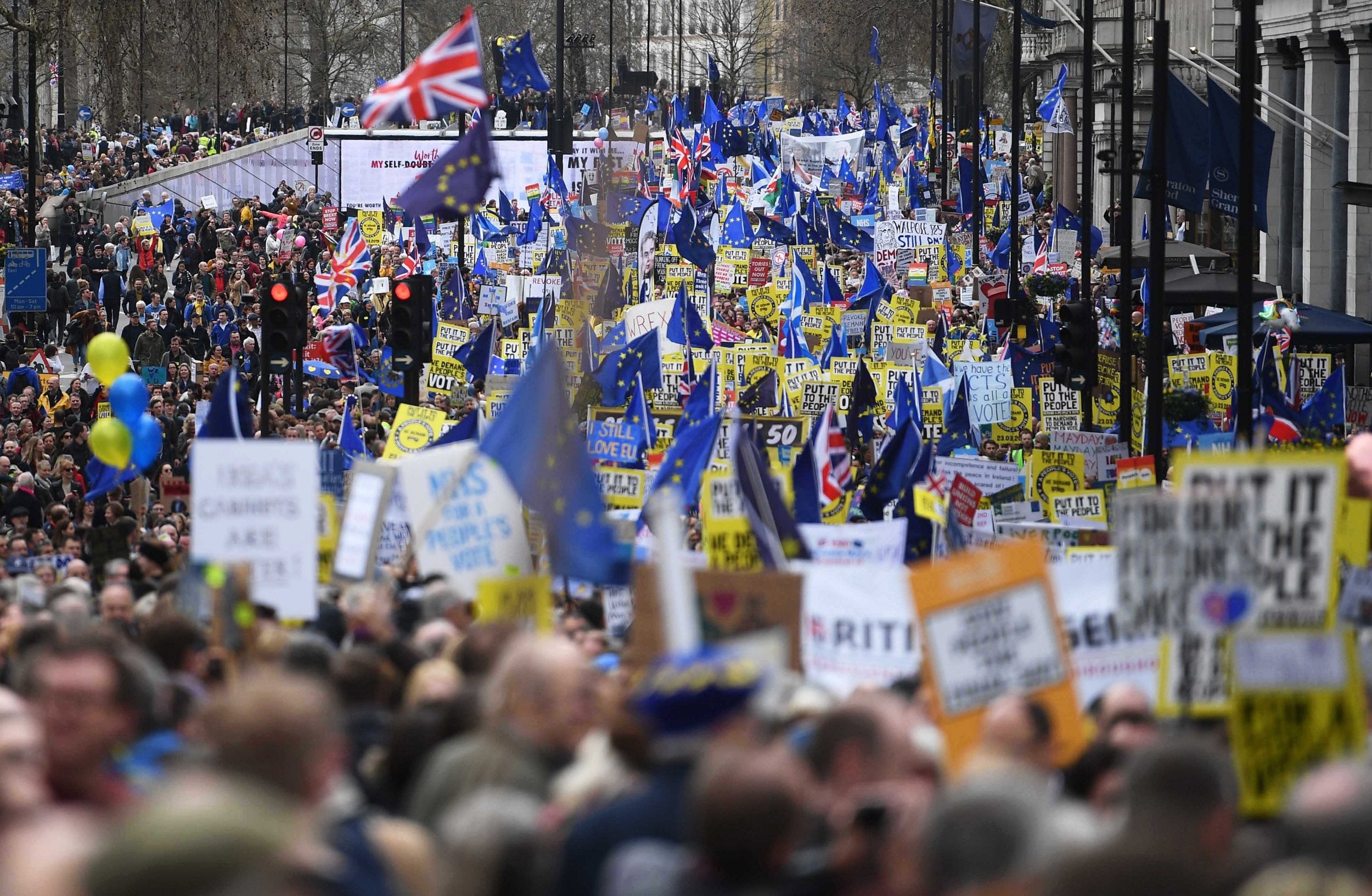Could parliament vote for a referendum on Boris Johnson’s deal?
As MPs prepare to have their say on the prime minister’s new deal, parliament still may not make up its mind, writes John Rentoul


Confusion reigns on whether MPs will vote on the question of a referendum in their Saturday session. Keir Starmer, the shadow Brexit secretary, said Labour would make the case for putting Boris Johnson’s deal back to the people for a final say, but many advocates of a referendum are arguing against tabling an amendment at this stage.
They are right to be cautious, because the numbers do not appear to add up for a referendum – as long as there is a chance that the Brexit deal will be approved.
My estimate is that a vote to put the deal to a referendum would be lost by a majority of about 40. I calculate this by starting with the indicative vote held in April, when the House of Commons tested support for various ways of breaking the Brexit deadlock – and rejected them all.
Peter Kyle, the Labour MP for Hove, tabled a motion for a “confirmatory public vote”. It was supported by the leaderships of all the opposition parties, and by 14 Conservative rebels, attracting 280 votes in total. Twenty-four Labour MPs voted against and 16 didn’t vote. It was defeated by 12 votes, which looks like a narrow margin, but the scale of opposition to a referendum was disguised because 66 MPs did not take part.
Those 66 included the entire cabinet and many other Conservative MPs, most of whom are hostile to a referendum. Among them, I think only five are possible supporters, if an amendment were attached to the Brexit deal: Kenneth Clarke, Philip Hammond, Oliver Letwin, Anne Milton and Amber Rudd.
Two more votes come from Newport West, a Labour seat that was vacant at the time of the indicative votes, and Brecon and Radnorshire, which the Liberal Democrats gained from the Tories in a by-election in August. Finally, Paula Sherriff, a Labour MP who supports a referendum, and four Scottish National Party MPs did not vote in April.
On the other hand, Stephen Kinnock (Labour) and Nick Boles (independent ex-Tory) voted for Kyle’s motion, but are now opposed to a referendum. There may be a few other MPs who have switched in one direction or the other, but the numbers are well short of the 318 needed to win.
My estimate is that about 290 MPs would vote for a referendum, with about 330 against, and perhaps the remaining 15 abstaining.
Everything changes, however, if the Brexit deal is defeated by the Commons, because then there are a number of Tory MPs in particular who would support a referendum as a second preference.
Stephen Hammond, the former health minister, who is one of the 21 Tories who were expelled from the parliamentary party, said yesterday that he would vote for the deal, but if it failed he would vote for a referendum. Many other Tory opponents of a no-deal Brexit would join him.
For them a referendum would be a way to avoid a no-deal exit, because it would end up either with Boris Johnson’s Brexit deal or with the UK staying in the EU, either of which would be preferable, in their view, to a “disorderly” Brexit.
That is why, if the deal is defeated on Saturday, the deadlock in the Commons could reach a new, painful pitch. Johnson might ask parliament for an election, but Labour MPs seem unlikely to agree to that as long as the Tories are 10 points ahead in the opinion polls.
The backbench crew might take control of the Commons timetable again via an emergency motion, to allow for another vote on a referendum, but practical obstacles would quickly become evident. It would be hard to legislate for and run a referendum against the wishes of the government. Yet the opposition parties cannot agree on a temporary prime minister to replace Johnson for the purpose of supervising a referendum.
This deadlocked parliament, that knows what it is against but not what it is for, could drag on, undecided, for a long time yet.
Join our commenting forum
Join thought-provoking conversations, follow other Independent readers and see their replies
Comments